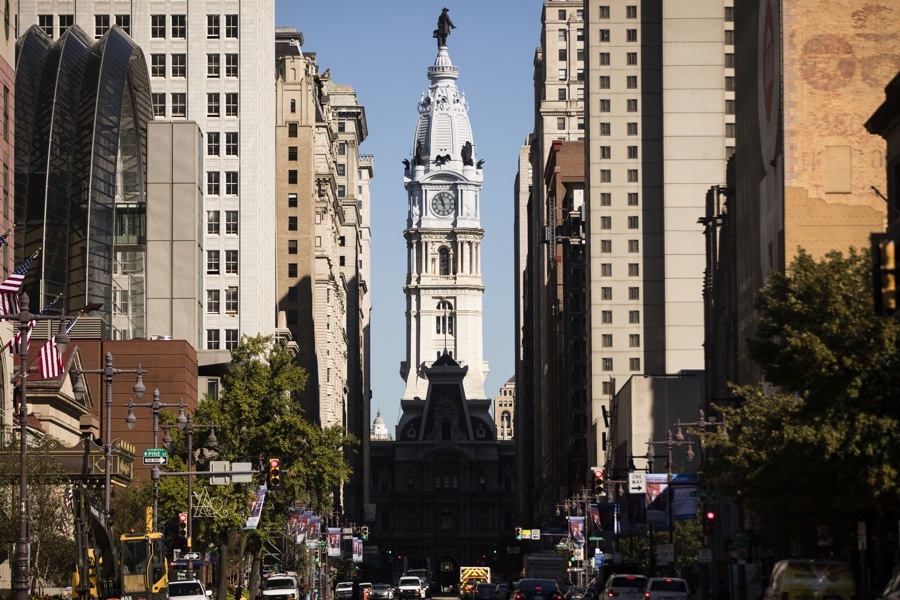When It Comes to City Contracts in Philly, White Privilege Wins
When a minority-owned city contractor broke lobbying rules last year, it was banned from bidding again. Guess what happened when a white-owned firm did the same thing?

City Hall (AP Photo/Matt Rourke)
A report released on Wednesday by the City Controller’s office reveals that the Kenney administration has a double standard when it comes to penalizing government contractors who have run afoul of city procurement laws.
In the report, titled “Voting Technology Procurement Investigation,” controller Rebecca Rhynhart lays out the case that the city’s active contract with Election Systems & Software should be voided.
The reason? ES&S, which is producing the city’s controversial new voting machines, failed to disclose that it had used consultants to lobby city officials in the two years before the application deadline for the contract. Additionally, according to Rhynhart’s report, ES&S “also failed to disclose recent political campaign contributions from its consultants … to Commissioners [Al] Schmidt and [Lisa] Deeley, the two officials who had the final say in awarding a $29 million contract to ES&S.”
A spokesperson for ES&S told The Hill that such disclosures were “inadvertently omitted in our vendor application” and that this occurred “due to our mistaken interpretation of Philadelphia’s contracting process.”
According to the city’s rules, these kind of omissions disqualify a vendor from bidding. Although the city found out about ES&S’s violations after its bid was approved, the city retains the power to void the contract. But rather than do that, the city merely fined the company. ES&S now has to repay 10 percent of the contract amount (around $2.9 million) as a result of its violations.
That’s a serious slap on the wrist, and it might seem a just penalty — if it weren’t for the fact that the city slit the throat of its largest minority contractor only a few months ago for doing the exact same thing.
It all happened last spring when the city disqualified U.S. Facilities, Inc., a minority-owned subsidiary of Philadelphia-based PRWT Services, from even bidding on a more than $14 million annual maintenance and security services contract after the company failed to disclose less than $500 in political campaign contributions in 2017.
U.S. Facilities had held the contract — the city’s largest for a minority-owned business — since 2003. In 2018, the company was the only one among the city’s top ten highest paid contractors to meet 100 percent of its minority-businesses enterprise (MBE) participation. (The ownership of the new winning bidder, Chicago-based Jones Lang LaSalle, is predominantly white.)
Many Black community leaders argued at the time that the city’s punishment was too severe, but Mike Dunn, a spokesperson for the Kenney administration, doubled down.
“These laws are well-known for their strict, mandatory requirements for disclosing political contributions and the resulting consequences for non-compliance,” Dunn then told The Philadelphia Tribune back in April.
So why is the same not happening to ES&S? If both companies failed to disclose their political contributions, both should receive the same consequence.
By allowing ES&S — a white-owned company with less than 1 percent minority participation — to keep its contract, the Kenney administration made clear where it stands on diversity and inclusion. When given a bold opportunity to counter implicit bias, double standards, and racial inequity, the city proved what many Black and brown business owners already know to be true: The system is fundamentally stacked against them.


